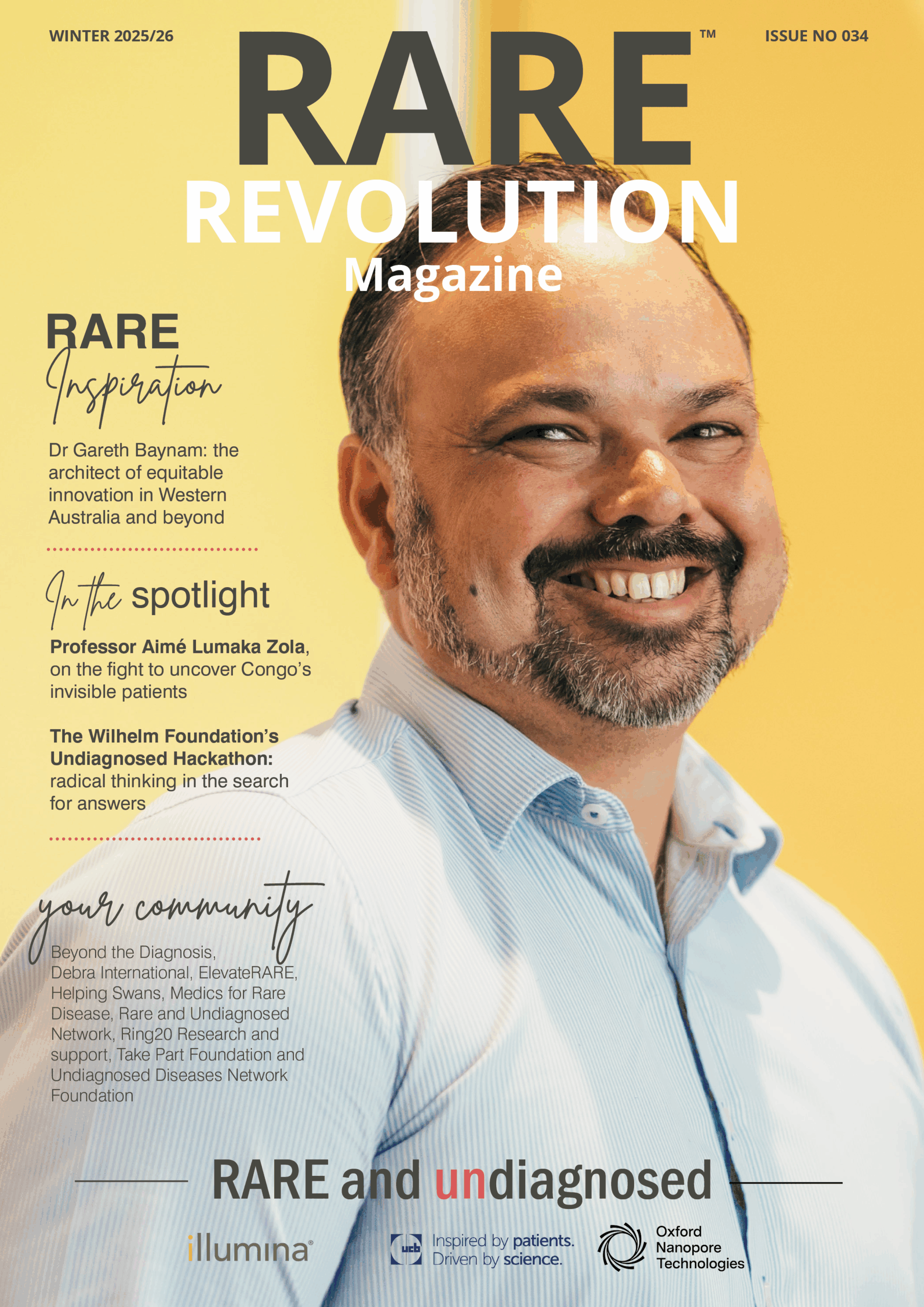Cure the cycle

Written by Jill Drury, Pharm.D., MBA
The value of hope. There are so many stories to tell. Join Jill Drury and she shares her next instalment on “the value of hope – cure the cycle”
Cure the cycle
For caregivers and patients living with rare diseases like urea cycle disorders, finding a community can bridge the isolation often felt as a consequence of any rare and frightening experience. Whether one is diagnosed at birth or later in life, understanding how to live and manage new realities is essential to well-being and mental health. Receiving any diagnosis can be emotional and result in confusion and loneliness. Frequently, people now learn test results through their electronic medical record before a provider even can review and begin considering a plan of action. The softer art and benefit of an informed “bedside manner” in medicine is no longer a given. Instead, patients may receive life-changing news electronically—and then seek out information through Google. In a world of instant gratification, it is hard to be patient and understand your resources. Individuals with a rare disease diagnosis may find comfort in finally knowing what they are facing. Their symptoms now have a name, but now one must process the confusion and loneliness that may be felt by having to undertake what can be an isolating experience.
Isolation occurs for many reasons with those facing a rare disease diagnosis. There is, of course, the physical and mental impact of symptoms. There also are the potential logistical difficulties in dealing with the healthcare system, including the ability to access treatments, the inevitable fits and starts in research, and care delays that may negatively impact the individual. Many of these drivers are unique to the individual patient and can hurt their ability to interact with their family, friends, and colleagues.
This does not have to be the case. Addressing isolation, like raising a child, can take a village—of healthcare professionals, family members, and friends. For a patient who feels alone following a rare disease diagnosis, knowing and owning their condition and having the ability to connect and be open with others can foster a sense of empowerment and community. From diagnosis onward, a comprehensive array of support can provide extreme benefits and is truly important for people with rare diseases.
The community pharmacist is an underutilised resource in the support system of patients with rare diseases. The community pharmacist is a free resource and does not even require an appointment. They can help triage symptom management, offer recommendations and ensure access to urgent care when appropriate. The community pharmacist can be the patient’s closest advocate within the medical community. I have experienced community pharmacists who help patients communicate their needs to maximise their treatment. This is often done by building connections to other patients with the same or similar rare disease.
Last year, I met an amazing group of patients and caregivers supporting the National Urea Cycle Disorders Foundation (NUCDF). Of all places, we met in Napa Valley, California.I was there to embrace the vineyards, the California sun, harvest and, let’s be honest, my most favourite chocolate chip cookie from Oakville Grocery. The group was in Napa, wearing these lovely blue shirts that made them stand out, participating in a bike race to promote awareness for urea cycle disorders.

One family shared a story with me. The parents had been very vulnerable, not knowing how they could be where they were without having discovered the NUCDF community. They thought they would be putting together a family bucket list to try and conquer dreams and make memories as quickly as possible. Or worse, planning a funeral. Fulfilling milestones like first dates, graduations, and trips overseas were just hopes and no longer seemed practical. The rare diagnosis was a relief in one sense, but it also felt like a death sentence. That is until they embraced the community around them and started to better understand the diagnosis and the resources and community at their disposal. They described how hope trickled back into their lives. Trips to Disney soon felt possible, smiles on the first day of school were now a given, riding a bike through Napa Valley was a foggy morning miracle.
One of my favorite philosophers, Seneca, says that wherever there is a human there is an opportunity for kindness. We make a life by what we give. NUCDF encourages positive change in the rare disease community and reinforces the impact of social engagement on outcomes. By empowering caregivers and patients to reflect and provide genuine comfort, they are building an authentic, innovative, kind and giving community that is aware.
The value of hope…
About Jill:
As a pharmacist by trade, I have been an inventor and an entrepreneur my whole life. Long gone are the days of independent corner drugstores, but working in one as a teenage girl inspired and shaped me in so many ways. I was constantly challenged and encouraged by managers and mentors to use and leverage my creative abilities to further my career path. Whether it was increasing patient satisfaction or negotiating contracts over soda and candy sales, every challenge that I faced in my pharmacy career taught me something new.
In business school, I continued to grow my skill set to collaborate with diverse groups of people all over the world. I have helped negotiate, innovate, and streamline drug dispensing mechanisms. I have published and worked to enhance public awareness and outreach around numerous industry and health-related topics.
Relaying valuable resources and knowledge to providers across the globe has become the compass of my mission. To gain the necessary perspective and foundation, I have listened carefully to the stories and concerns of the patients who are the very reason why we strive for excellence. They are the ultimate destination in my profession. It is for the patient that we aim to maximise value – value in accessing medications and quality of care that will extend their lives.


